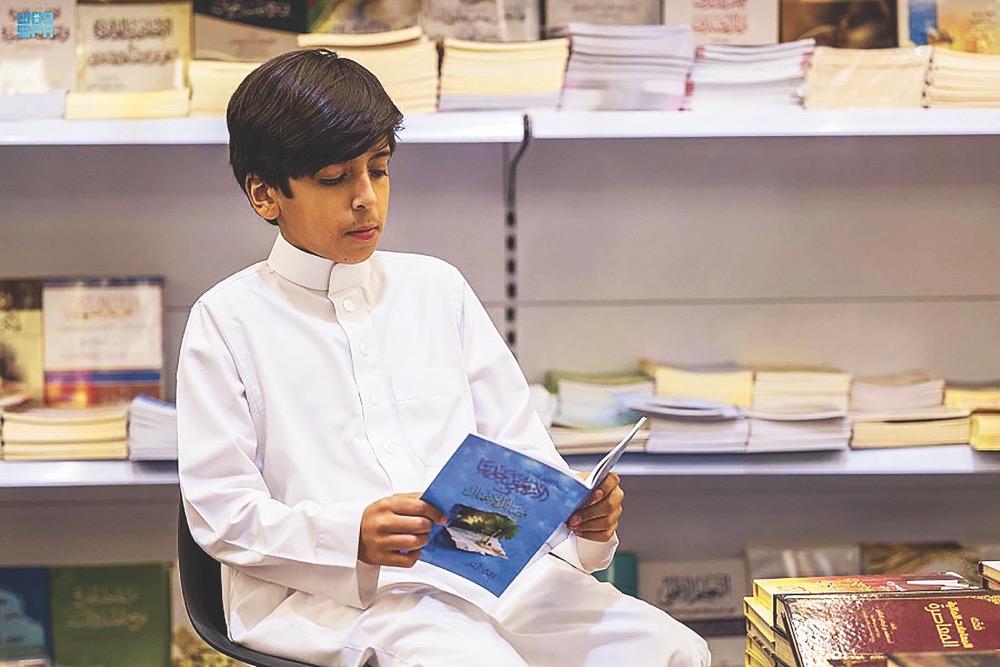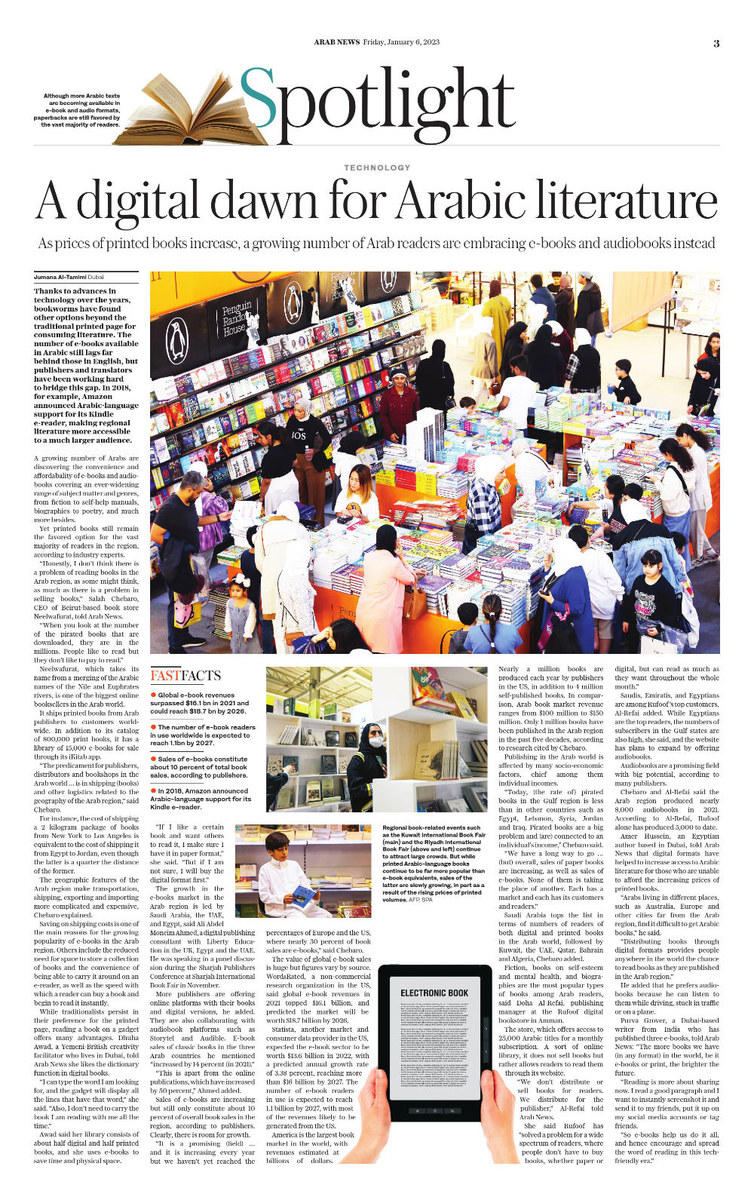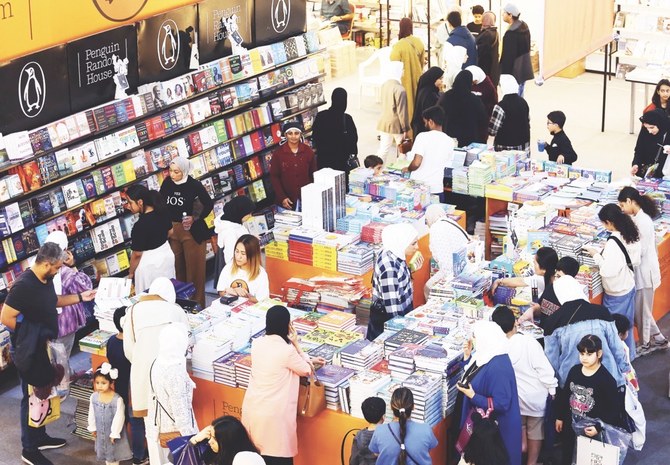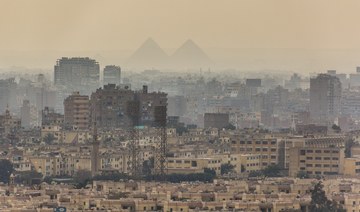DUBAI: As technology advances, bookworms are finding more options to consume literature than just through the printed word. Though e-books in Arabic are far fewer in number than those in English, publishers and translators are working to bridge the gap.
In 2018, Amazon announced Arabic-language support for the Kindle e-reader, opening the door of literature to a much larger audience.
From novels to self-help books, biographies to poetry and more, an increasing number of Arabs are finding affordable means to gain knowledge in e-books and audiobooks. Yet, reading a printed book is still the most favored option for the vast majority.
“Honestly, I don’t think there is a problem of reading books in the Arab region as some might think, as much as there is a problem in selling books,” Salah Chebaro, CEO of Beirut-based Neelwafurat, told Arab News.
Neelwafurat, one of the biggest online bookstores in the Arab world, is a word merging the two Arabic names of the Nile and Euphrates rivers.
The bookstore sells printed books from Arab publishers to different cities around the world. It boasts a stock of 15,000 e-books for sale that can be read through the iKitab application, as well as 800,000 printed books.

While printed Arabic-language books continue to be far more popular than e-book equivalents, sales of the latter are slowly growing, in part as a result of the rising prices of printed volumes. (SPA)
“When you look at the number of the pirated books that were downloaded, they are in the millions,” Chebaro said in an online interview from the Lebanese capital. “People like to read, but they don’t like to pay to read.”
However, “the predicament for publishers, distributors and bookshops in the Arab world … is in shipping (books) and other logistics related to the geography of the Arab region.”
For instance, the cost of shipping a consignment of printed books weighing a total of 2 kilograms from New York to Los Angeles in the US is roughly the same as, say, sending it from Cairo to Amman.
This is because of the geographical distribution of the Arab region, which makes transportation, shipping, exporting and importing more complicated and expensive, Chebaro said.
Saving on shipping costs is among the main factors behind the increasing popularity of e-books in the Arab region. Other factors include saving the space needed to store and carry around print books, as well as the speed of buying a book online, which can be finalized in the blink of an eye.
While some continue to maintain their preference for the printed word, reading on gadgets has many advantages. Yemeni-British Dhuha Awad, a creativity facilitator based in Dubai, says she likes the dictionary function in digital English books.
“I can type the word I am looking for, and the gadget will display all the lines that have that word (in the digital book). Also, I don’t need to carry the book I am reading with me all the time,” Awad told Arab News.
Her library consists of roughly equal numbers of digital and printed books, and she uses the e-book format to further save time and physical space. “If I like a certain book and want others to read it, I make sure I have it in paper. But if I am not sure, I will buy the digital format first,” she said.
FASTFACTS
• Global e-book revenues surpassed $16.1bn in 2021 and could reach $18.7bn by 2026.
• The number of e-book readers worldwide is expected to breach 1.1bn by 2027.
• Sales of e-books constitute around 10% of overall book sales, according to publishers.
• In 2018, Amazon announced Arabic-language support for the Kindle e-reader.
The growth in the e-books market in the Arab region is led by Saudi Arabia, the UAE, and Egypt, Ali Abdel Moneim Ahmed, digital publishing consultant with Liberty Education in the UK, Egypt, and UAE, said during a panel discussion at the Sharjah Publishers Conference on the sidelines of the 2022 edition of the UAE’s Sharjah International Book Fair, held every November.
More and more publishers are offering online platforms with their books having digital versions, Ahmed said. Publishers are also collaborating with audio-ready platforms, such as Storytel and Audible.
E-book sales of classic books in the markets of the three aforementioned Arab countries have “increased by 14 percent (in 2021),” Ahmed said. “This is apart from the online publications, which have increased by 50 percent.”
Despite the increasing sales of e-books, there is still room for even more growth. Sales of e-books constitute around 10 percent of overall book sales, according to publishers.
“It is a promising (field) … and it is increasing every year. But we haven’t yet reached the percentages of Europe and the US, where nearly 30 percent of books sales are e-books,” Chebaro told Arab News.
Global e-books sales are massive, despite figures varying among different sources and websites.
According to WordsRated, a US-based non-commercial research organization, global e-book revenues in 2021 reached over $16.1 billion, and is expected to cross the $18.7 billion mark by 2026.
Statista, another US-based market and consumer data provider, expects the e-books segment to reach $13.6 billion in 2022, with an anticipated annual growth rate of 3.38 percent, reaching over $16 billion by 2027.

Saudi Arabia tops the list of buyers and readers for both digital and printed books in the Arab world. (SPA)
The number of e-book readers is expected to reach over 1.1 billion by 2027, with most of the revenues expected to be generated by the US. The country is the largest book market in the world, with its revenues estimated in billions of dollars.
Nearly one million books are being published yearly in the US, in addition to four million self-published books annually.
By comparison, the Arab book market’s revenue ranges between $100 and $150 million. Only a million books have been published in the Arab region in the past five decades, according to data shared by Chebaro with Arab News.
Figures on publishing in the Arab world are related to many socio-economic factors, chief among them individual income.
“Today, (the rate of) pirated books in the Gulf region is less than other countries such as Egypt, Lebanon, Syria, Jordan and Iraq. Pirated books are a big problem and (are) connected to an individual’s income,” Chebaro told Arab News.
“We have a long way to go … (but) overall, sales of paper books are increasing, as well as the sales of e-books. None of them is taking the place of another. Each has a market and each has its customers and readers.”
Saudi Arabia tops the list of buyers and readers for both digital and printed books in the Arab world. It is followed by Kuwait, the UAE, Qatar, Bahrain, and Algeria, according to Chebaro.
Fiction, self-esteem and mental health, and biographies top the list of subjects of interest to Arab readers, Doha Al-Refai, publishing manager at the Rufoof digital bookstore, told Arab News from Amman in Jordan.
The store, which offers 25,000 Arabic titles for a monthly subscription fee, acts like a sort of online library — not selling digital or print copies of books, but rather allowing readers to read books on their website.
“We don’t distribute or sell books for readers. We distribute for the publisher,” Al-Refai told Arab News.
Rufoof has “solved a problem for a wide spectrum of readers, where people don’t have to buy books, whether paper or digital, but can read as much as they want throughout the whole month.”

Saudis, Emiratis and Egyptians are among Rufoof’s top clients. While Egyptians are among the most voracious readers, the number of subscribers in the Gulf states are also high, Al-Refai said, adding that the website has plans to expand into audiobooks.
Audiobooks are a promising field with big potential, according to many publishers. Chebaro and Al-Refai said that the Arab region produced nearly 8,000 audiobooks in 2021, with Al-Refai adding that Rufoof accounted for 5,000 so far.
Egyptian author Amr Hussein says the digital format has helped increase access to literature for those who are unable to afford the increasing prices of books.
“Arabs living in different places, such as Australia, Europe, and other cities far from the Arab region, find it difficult to get Arabic books,” Hussein, who lives in Dubai, told Arab News.
“Distributing books through digital formats provides people anywhere in the world the chance to read books as they are published in the Arab region.”
He said, personally, he prefers audiobooks as he can listen to them while stuck in traffic or in a plane.
Many readers and writers will likely agree with Purva Grover, a Dubai-based writer from India with three e-books under her belt, who told Arab News via email: “The more books we have (in any format) in the world, be it e-books or print, the brighter the future.
“Reading is more about sharing now — I read a good paragraph and I want to instantly screenshot it and send it to my friends, put it up on my social accounts or tag friends — so e-books help us do it all, and hence encourage and spread the word of reading in this tech-friendly era.”





























